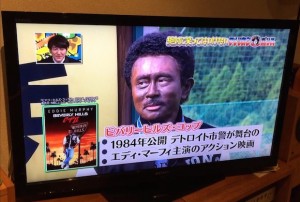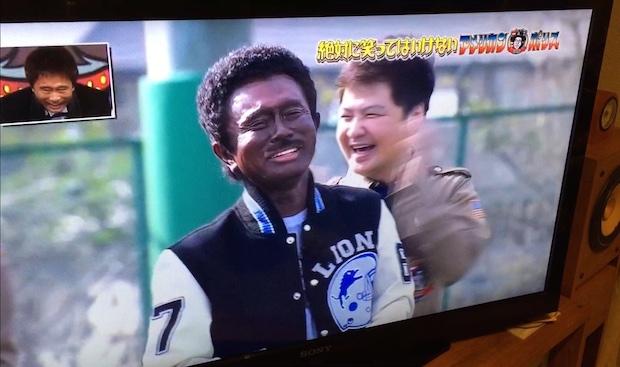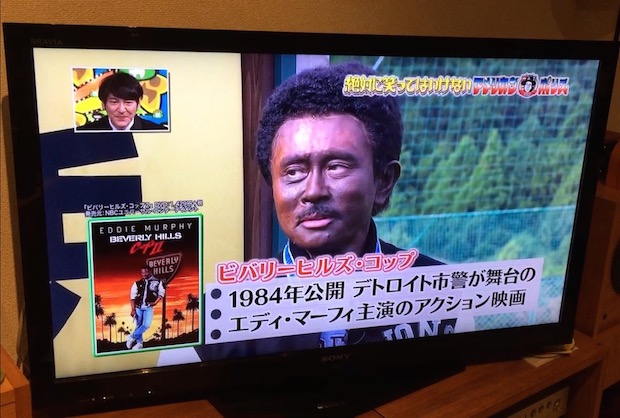
New Year in Japan has many traditions, from the food to household decorations. Television is part of the ritual of Oshogatsu, perhaps most famously the NHK music show Kohaku. Another perennial favorite is the New Year’s Eve special of long-running comedy show Downtown no Gaki no Tsukai ya Arahende!!, or just Gaki no Tsukai, which has been broadcast annually on December 31st for several years. Its premise is that the comedy duo Downtown and other guests are forced to do increasingly ridiculous things in an outlandish setting. In what is known as the No-Laughing Batsu Game, every time one of the comedians laughs is rewarded with a physical punishment.
It is a genuinely funny show, full of in-jokes and slapstick, and attracts a huge audience as counter-programming to the music on NHK. For this year’s edition, however, one of those “ridiculous” things was pretending to be black.
It is a typical aspect of the show that the main comedians have to wear silly clothes or alter their appearance in other ways. As part of his ordeal, the comedian Masatoshi Hamada had to endure being transformed into Eddie Murphy. Culturally sensitive viewers were dismayed to see Hamada in blackface from the first few minutes of the show that lasts several hours.


The black, Yokohama-based journalist Baye McNeil was one of the first to call this out as racist and inappropriate, leading a charge on Twitter to complain to the broadcaster, NTV.
Unfortunately, blackface in Japan is nothing new and examples of it crop up in comedy, music and entertainment.
A December 2017 production in Tokyo of the musical Memphis also featured an almost entire cast of Japanese performers in blackface alongside Pittsburgh-born, black singer Jero.
Other recent cases of high-profile racism or perceived inappropriate choices in popular culture in Japan include a woefully misjudged advertising campaign by ANA with Japanese performers wearing fake noses to play “foreign” characters. That was back in 2014, but came only shortly after a similar campaign by Toshiba.
In 2015, the idol group Momoiro Clover Z posed in blackface with Rats & Star, a much older music group that has longer performed in blackface. When a photograph of the two groups posing in blackface went viral, the TV channel sensibly backed down and did not broadcast the segment.
